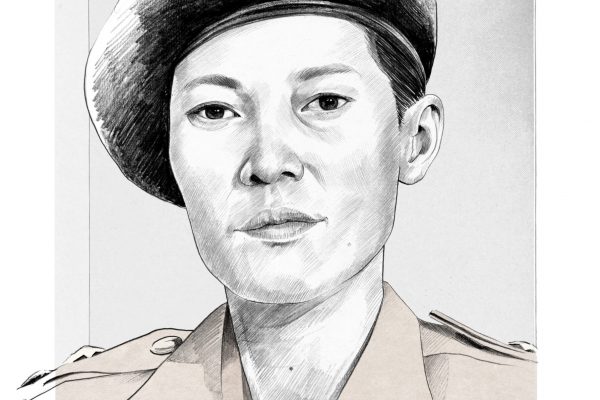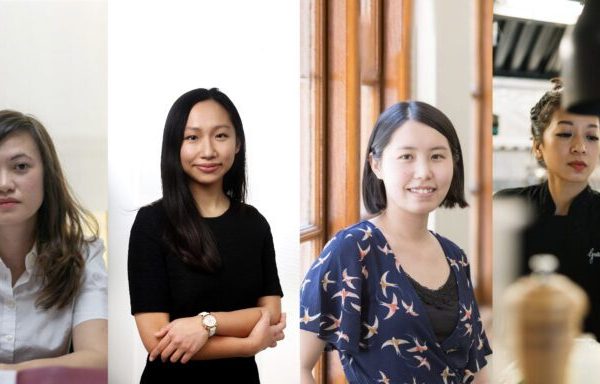NGO Focus: 10 minutes with the Association of Women with Disabilities
Shelley, whose name Ariana has changed on request, is a polio survivor and a wheelchair user in her 50s. Despite physical constraints, she cares for her 90-year-old mother, who was diagnosed with Alzheimer’s disease eight years ago. Every day, Shelley prepares meals, assists her mum in the bathroom, manages doctor’s appointments – it’s a round-the-clock job.
Being the primary caretaker while suffering from a disability is an often overlooked issue in Hong Kong. According to a 2013 survey of persons with disabilities and chronic diseases, which the Hong Kong Kong Census and Statistics Department conducts every five years, more than 300,000 women living in the city suffer from at least one form of disability. The figure doesn’t include women with intellectual disabilities, for which no government statistics have been released.
Like Shelley, often-unmarried women with disabilities take up the role of sole caregivers as their parents age. In many cases, it’s because their healthy siblings have their own families to support.
That’s why the Association of Women with Disabilities Hong Kong (AWDHK) came to be. Operated by a group of women with disabilities, the registered charitable organisation aims to improve social status and quality of life through empowering initiatives and political activism. The association counts more than 1,100 members – 60 per cent of whom are women with disabilities.
To understand the work of AWDHK, we sat down with president Carmen Yau, and Q’sa Yuen, former president and current committee member, at their office in Wang Tau Hom Estate.
Ariana: What inspired you to help women with disabilities?
Carmen Yau: Not many people think about the problems faced by women with disabilities. In general, women make up a large part of the disabled population, but their voices often go unheard. Everything is so male-dominated. I think the positioning of AWDHK, as a niche within a niche, reflects a lot of social issues in our society.
Ariana: What are the major challenges for women with disabilities in Hong Kong?
Yau: The neglect they endure. Take the #MeToo movement, for example. Many people only associate celebrities and athletes with it. But sexual abuse and sexual harassment are also major problems for women with disabilities. A culture of shaming often hinders victims, or their family members, to report assaults.
In an online survey on domestic violence we conducted in July, at least one-third of the 80 participants claimed to have been exposed to either verbal or physical abuse. We were shocked to find that parents were the biggest perpetrators, followed by husbands. This might happen because of the stress that a disability brings upon both the people experiencing it and the caregivers. Often, conflicts can stem from this stress.
Ariana: What kind of support does AWDHK provide?
Q’sa Yuen: We offer learning platforms to improve day-to-day skills and raise awareness of issues like gender stereotypes and sexual abuse. For instance, from 2011 to 2017, we organised three rounds of the Women with Disability Academy, an initiative that included workshops on sexual harassment and household maintenance classes. We also organise for our members to attend seminars on gender issues and equality, from the Women’s Commission Conference to Gender Mainstreaming and the Unpaid Care International Forum.
Yau: We hope that activities of this kind can bring these women together, because it is easy for them to be isolated. AWDHK offers a community where we can take care of each other. I think Q’sa is doing a great job in this respect. Every time we have members going to and from the hospital, she accompanies and supports them. That kind of sisterhood is the best empowerment we can provide.
Ariana: What should the government do to protect women with disabilities?
Yau: Since starting AWDHK, we have been asking the government to acknowledge the identity of caregivers with disabilities. In Hong Kong, the administration provides separate allowances to caregivers and people with disabilities – it’s one or the other. If a caregiver has a disability, he or she is not qualified to receive the subsidy that ‘regular’ caregivers are entitled to. The allowance is not much, between HK$1,720 and HK$3,440, depending on the disability. In a city like Hong Kong, living on such a small subsidy can be really tough.
I would also like to encourage a housing programme for single women with disabilities, which would allow them to live together and share resources. This kind of programme would let women with disabilities integrate into the community and choose the lifestyle they want, which would not be possible at a rehab complex.
Yuen: Actually, countries like Japan and England run similar community-based housing for people with disabilities, where several families have their own apartments but share a common kitchen, living room, and the cost of a domestic worker.
The concept [of de-institutionalisation] has been advocated by United Nations, because it encourages local governments to adopt a family-style operation [when it comes to aid], instead of building sheltered workshops or dormitories, where you would find 50 to 60 people crowded together.
Ariana: How do you make your voices heard?
Yuen: We participate in all kinds of government assemblies, like Council meetings and conferences. We also attend barrier-free travel conferences to shed light on obstacles faced by travellers with disabilities. Although not all of these gatherings and summits are related to gender issues, we try to offer our input. We often don’t get any response, but we still continue to speak out.
Yau: I remember once, during one of these meetings, a government official said to me: “Ms. Yau, I heard this point last time I met you.” My reply to him was: “Yes, you have heard this before; why do you make me repeat myself?” I feel like we are in an on-going guerrilla battle – my hope is that we will be able to live long enough to see changes.
Ariana: Why is it so hard for change to occur?
Yau: It is easy for the government to disregard us. They often cite ‘priority’ as an excuse, meaning they first have to fix the issues faced by the majority of the population.
Yuen: In Hong Kong, the development of social rights for people with disabilities has been very slow. When I was working for another association in the 1980s, we negotiated with MTR Corporation Limited, asking them to build barrier-free facilities. But their answer would usually be something like: “It’s a waste of resources if they only benefit a few people.”
Over the past decade, we have finally started to see more barrier-free facilities at some MTR stations, because there was a sudden push for accessibility around the world. As an international city, Hong Kong couldn’t be seen to lag behind.
Ariana: So there a few changes taking place?
Yuen: I think there is growing awareness about the special place women with disabilities occupy in society. Increasingly, we are invited to join discussions related to rehabilitation. We continue to analyse every disability-related issue from a gender perspective. When we talk about barrier-free facilities, for instance, we will think of how washrooms should be designed to make them more accessible for women with disabilities. I think we have established a distinct position for our association.
Ariana: What’s next for AWDHK?
Yau: AWDHK was established nearly 20 years ago; many of our members are aging. Our next goal is to recruit younger women to join us. That might also help to address other problems faced by women with disabilities, because people at different ages see distinct challenges. We must also admit that due to lack of manpower it’s difficult to help our members deal with immediate crises. Getting more funding in the future is also a key goal, so that eventually we can support our members with specialists, from plumbers to professional caregivers. N
Learn more awdhk.org
Innovation on Wheels
A trio of enterprising high school students invented iWheel to make wheelchairs more affordable and portable.
An important mobility aid for the elderly and people with disabilities, electric power wheelchairs can cost anywhere from HK$10,000 to more than HK$200,000, depending on the quality.
But Ho Yee Ting, Chen Zhenjian, and David Ng – F.6 students from Buddhist Wong Wan Tin College – hope to provide an affordable alternative. Since September 2017, the trio has been developing iWheel. The invention converts a manual wheelchair into an electrical one by attaching an in-wheel electric motor to a board or frame, at the bottom of a manual wheelchair. With this innovative solution, users can control the chair with a joystick.
According to Ho, the production cost of iWheel is only HK$1,000 and, unlike most of the electric versions, the chairs can fold for easier portability. After launching prototypes this April, the entrepreneurs have garnered several awards, including first prize at the Hong Kong Youth Science and Technology Innovation Competition and top honours at the China Adolescents Science & Technology Innovation Contest earlier this year.
“We have already been approached by several companies who wish to work with us to optimise iWheel,” says Ho. “We will continue to work on the project, so we can launch it for sale.”
 iWheel
iWheel
A Clinical Error
Many women with disabilities forgo gynecological checkups at the expense of their health. Here’s why.
For women with physical disabilities, gyno check-ups aren’t a simple process. They need to ensure the clinic offers elevator beds, qualified assistants, and spacious corridors with wheelchair access.
After conducting a small-scale healthcare survey in July this year, honorary treasurer of AWDHK Edith Leung found that 88 per cent of the 45 women with disabilities she approached do not have regular exams. Many respondents cite the stress of non-barrier-free facilities as a major deterrent.
Over the past decade, AWDHK notes that many government hospitals have installed elevator beds. However, medical staff often lack training to help women with disabilities – some women were even asked to climb onto a bed without assistance.
In addition to accessibility issues, Yau says some AWDHK members believe check-ups aren’t necessary based on feedback from doctors. In Yau’s conversations with gynecologists, many said women with disabilities “shouldn’t have any issues” when it comes to their reproductive health because they supposedly haven’t had sex or children.
Yau says such medical advice has convinced a substantial number of women with disabilities to skip check-ups. “The government needs to encourage these women to get check-ups,” she says. “Even though they are a minority of sorts, they still need to be taken care of.”

